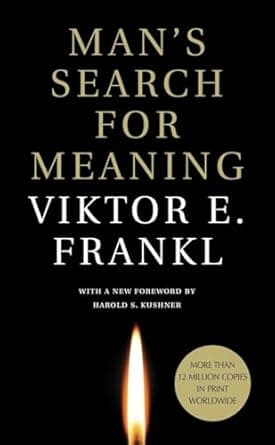
Book Stats
725
Upvotes
35
Downvotes
+690
Net Score
Man's Search for Meaning
by Viktor E. Frankl
Description
Frankl's profound reflection on his experiences in Nazi concentration camps and his development of logotherapy, exploring how to find purpose in the face of suffering.
Viktor Frankl's powerful work combines a Holocaust memoir with a psychological theory about the importance of meaning in human life. As a psychiatrist imprisoned in Nazi concentration camps, Frankl observed how different prisoners responded to extreme suffering and developed insights that revolutionized psychotherapy.
The book's first section, describing life in the concentration camps, reveals how humans can maintain dignity and hope even in the most dehumanizing circumstances. Frankl's clinical perspective allows him to analyze the psychological dynamics of survival while honoring the suffering of those who didn't survive.
Frankl's central insight is that humans' primary motivation is not pleasure (as Freud argued) or power (as Adler claimed) but meaning. He observed that prisoners who found purpose in their suffering—whether through thoughts of loved ones, unfinished work, or spiritual beliefs—were more likely to survive than those who lost hope.
The book's second section outlines logotherapy, Frankl's approach to psychotherapy based on the search for meaning. Unlike therapies that focus on past trauma or unconscious drives, logotherapy helps people discover purpose in their present circumstances, however difficult.
Frankl's famous quote—"Everything can be taken from a man but one thing: the last of human freedoms—to choose one's attitude in any given set of circumstances"—encapsulates his philosophy. This emphasis on human agency and responsibility resonates with readers facing their own challenges and suffering.
The book's treatment of guilt, responsibility, and forgiveness provides a framework for understanding how people can recover from trauma and build meaningful lives. Frankl's own ability to forgive his captors while maintaining memory of their crimes offers a model for post-traumatic growth.
Man's Search for Meaning has sold millions of copies and been translated into dozens of languages, demonstrating its universal appeal. It continues to provide comfort and guidance to readers facing illness, loss, and other forms of suffering, while offering mental health professionals valuable insights into human resilience.